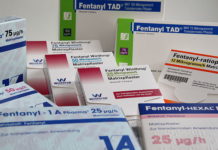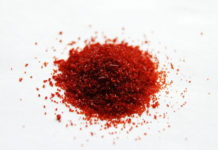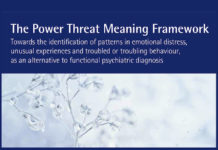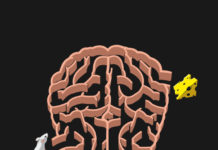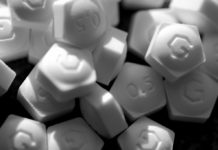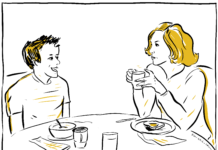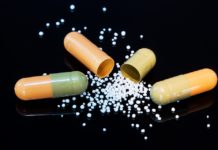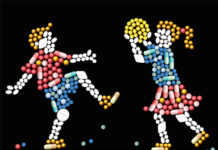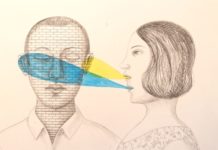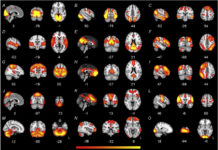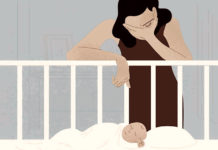Researchers Find Bias in Industry-Funded Continuing Medical Education
Industry-funded continuing medical education (CME) influences physicians to prescribe more opioids, focus less on the consequences.
Lithium: A Survivor’s Guide for Parents
When I was a young adult, I was misdiagnosed with bipolar disorder and placed on lithium. I am 61 years old now, living on the edge of end-stage kidney disease. If I could undo everything, by all means, I would not have taken this drug. It is not safe for anyone at any age.
Sodium Nitroprusside Shows No Efficacy in Schizophrenia Treatment
Researchers question biases of preliminary trials that found that sodium nitroprusside, an antihypertensive drug, has positive effects on schizophrenia symptoms.
The Power Threat Meaning Framework One Year On
The team that developed the Power Threat Meaning framework as a diagnostic alternative reflects on the response to the framework after one year.
The Role of Racial Bias in the Overdiagnosis of Schizophrenia
Researchers detect disparity between white and African American patients diagnosed with schizophrenia when symptoms of a mood disorder are present.
The Role of Intergenerational Trauma in the Perpetuation of Childhood Maltreatment
A new study examines the role parent borderline pathology plays in the perpetuation of childhood maltreatment.
Helping People to Constructively Engage with Voices
When voices are engaged with creativity and compassion, the result can be a positive change in the relationship with voices, leading to much greater peace of mind. But how can people learn how to facilitate this? A new video series by Charlie Heriot-Maitland, Rufus May and Elisabeth Svanholmer offers some practical ideas.
Researchers Fail to Replicate Evidence for “Biotypes” of Depression
A new study casts doubt on whether such biotypes for depression exist.
Valuing Posttraumatic Growth in Psychosis
Individuals who experience psychosis can also experience posttraumatic growth, which can be a central component of the recovery paradigm.
Antidepressant Use Linked to Longer, More Frequent Psychiatric Rehospitalization
New study finds that antidepressants may negatively impact recovery after psychiatric hospitalization.
More Physical Activity-Based Mental Health Interventions Needed in Schools
What physical activity-based programs are being implemented in schools, how are they being researched, and what kind of impact have they made?
Struggling Parents, Burdened Social Services: What We Can Change
Parents encounter many obstacles when trying to secure adequate educational, medical, psychological, and social supports for their children. These “dense bureaucracies” hurt not just families, but everyone.
The Impact of Regression to the Mean in Psychiatric Drug Studies
Could the statistical phenomenon of regression to the mean be responsible for the dramatic effects of placebo—as well as the supposed effectiveness of some psychiatric drugs?
What I Have Learned from My Psychosis
During my periods in forced hospitalization, I did not feel that the psychiatrist understood how much I suffered. When I stayed in solitary, I felt that the earth would vanish. There I was, locked away from my loved ones. I thought I wasn’t allowed by the secret service to talk with anyone. But during my psychosis, I met God, and I found out that God is love.
More Psychological Supports Needed to Manage Antidepressant Discontinuation
Study reviews psychological interventions for antidepressant discontinuation.
Withdrawal Symptoms Routinely Confound Findings of Psychiatric Drug Studies
Researchers examine how rapid discontinuation can mimic the relapse of mental health symptoms and confound psychiatric drug studies.
Q&A: Is My Child Being Overdrugged?
My eight-year-old daughter has diagnoses of ADHD, depression, anxiety, and ODD. She is taking four prescribed drugs, but she is still suffering and her behavior hasn’t changed much. Her doctor is suggesting adding yet another med. I’m wondering how many drugs are enough? I am starting to think she should go off some of them. I want to trust the psychiatrist, but I’m just not sure anymore.
Psychiatrists View Drug-Free Programs for Psychosis as “Unscientific,” Study Finds
A new study provides an insider’s look into how psychiatrists view the establishment of drug-free programs in Norway.
Higher Minimum Wage May Result in Fewer Suicide Deaths, Study Finds
New research suggests that minimum wage laws provide financial security that may help prevent suicide.
International Research Team Proposes a New Taxonomy of Mental Disorders
New data interpreted to suggest a hierarchical, dimensional system of mental disorders will aid future research efforts and improve mental health care.
The Effects of Antidepressant Exposure Across Generations: An Interview with Dr. Vance Trudeau
Dr. Vance Trudeau discusses his study's finding that antidepressants may have far-reaching, adverse effects that last up to three generations.
No Brain Connectivity Differences Between Autism, ADHD, and “Typical Development”
Neuroscience researchers find no differences in brain connectivity between children with diagnoses of autism, ADHD, and those with no diagnoses.
Ambushed by Antidepressants for 30 Years
They helped me function for a while, but the debilitating side effects of antidepressants held me prisoner. I'm still having a hard time understanding how this could have happened. It's been suggested to me by a therapist that what I'm going through now is another kind of PTSD: the ongoing trauma of realizing what antidepressants did to me for 30 years.
A Faux Test for a Faux Disease Promoted by Real Psychiatrists
Influential psychiatrists recently called on the NHS to make a faux schizophrenia test available to patients and their families. What is most astounding about this is the complete lack of pretense. "We are so certain of our power and righteousness that we are going to tell you to your face that we are lying, and yet, we will still get our way."
“Breakthrough” Treatment for Postpartum Depression: Game Changer or Misguided Magic Bullet?
Ultimately, the FDA Advisory Committee recommended approval of brexanolone by a 17-1 member vote. I was the only NO vote. I voted NO because as the sole Consumer Representative on the committee I didn’t believe the company had demonstrated that the potential benefits outweighed the potential for harm.

